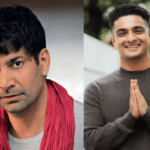
Jasbir Jassi Slams Ranveer Allahbadia’s Remarks – Calls for Responsible Content Creation
Introduction
Punjabi singer Jasbir Jassi has strongly criticized YouTuber Ranveer Allahbadia, also known as BeerBiceps, for his recent controversial remarks. Jassi believes that content creators and musicians must act responsibly, as their words and work influence millions, especially the youth. His comments have sparked a larger debate on the impact of modern music, social media, and the need for cultural accountability.
Jasbir Jassi’s Concerns About Modern Music
Jasbir Jassi, known for his soulful Punjabi folk and Sufi music, has often spoken out against the growing influence of vulgarity and Western trends in Indian music. He argues that over the past 15-16 years, rap and hip-hop culture have introduced explicit lyrics and inappropriate themes, which negatively impact young listeners.
He believes that music should uplift and inspire rather than promote violence, substance abuse, or disrespectful language. His latest comments highlight his ongoing fight to preserve the purity and essence of Indian music.
Why Did Jasbir Jassi Criticize Ranveer Allahbadia?
Ranveer Allahbadia, a well-known YouTuber and influencer, recently made comments about Punjabi music and culture that did not sit well with Jassi. While Allahbadia is known for his motivational and business-related content, Jassi felt that his understanding of Punjabi music lacked depth.
Jassi responded by stating that influencers and artists must be mindful of what they say, as their words shape public perception. He emphasized that Punjabi music is not just about trends but has a rich cultural and historical significance.
The Demand for a Music Censorship Board
Taking his argument a step further, Jassi suggested that India should have a censorship board for music, similar to the one for films. He believes that, just as movies are reviewed before release, songs should also be monitored to prevent the spread of inappropriate content.
His concern is that music has become more about marketing than meaningful art, and introducing a review system could help ensure that songs maintain cultural and ethical integrity.
A Message to Parents and Society
Jassi also addressed parents and guardians, urging them to be aware of the music their children listen to. He encouraged families to educate young people about the difference between meaningful music and songs created just for shock value or commercial success.
He believes that both artists and listeners share the responsibility of promoting good music that benefits society rather than harming it.
Conclusion
Jasbir Jassi’s criticism of Ranveer Allahbadia’s remarks has reignited discussions about cultural accountability in music and social media. His call for responsible content creation is an important reminder that music and digital content should inspire and educate rather than mislead or corrupt.
As these debates continue, it will be interesting to see whether the Indian entertainment industry takes steps towards more responsible content creation or continues down the path of commercialized entertainment.








